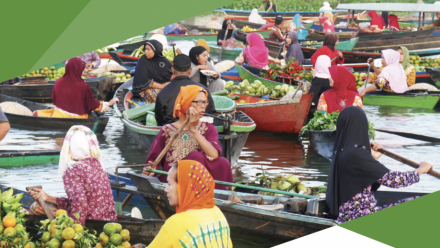COVID-19 and food systems in the Indo-Pacific: An assessment of vulnerabilities, impacts and opportunities for action
Emergency responses to the COVID-19 pandemic have had dramatic impacts in the Indo-Pacific region. The COVID-19 shock has reverberated through food systems since its onset in early 2020, exposing and amplifying existing vulnerabilities. Smallholder farmers and fishers have had to react deftly and creatively as the situation unfolds, responding within the constraints of their local circumstances. Women, girls and other vulnerable groups have been hardest hit.
This report presents the results of a study that examined the impacts of the COVID-19 pandemic on food systems. It provides a basis for planning future research and development to support food systems resilience in the Indo-Pacific region, primarily from the perspective of smallholder farmers and fishers.
The study comprised five assessments, focusing on the first six months of the pandemic (January–July 2020) in Indonesia, seven Pacific island countries, Papua New Guinea, the Philippines and Timor-Leste. Special attention was paid to identifying opportunities for action through research and development investments that might strengthen the resilience of food systems to future shocks.
You can join us online for the report launch at 10am on Tuesday 10 Nov, 2020. More details here.











